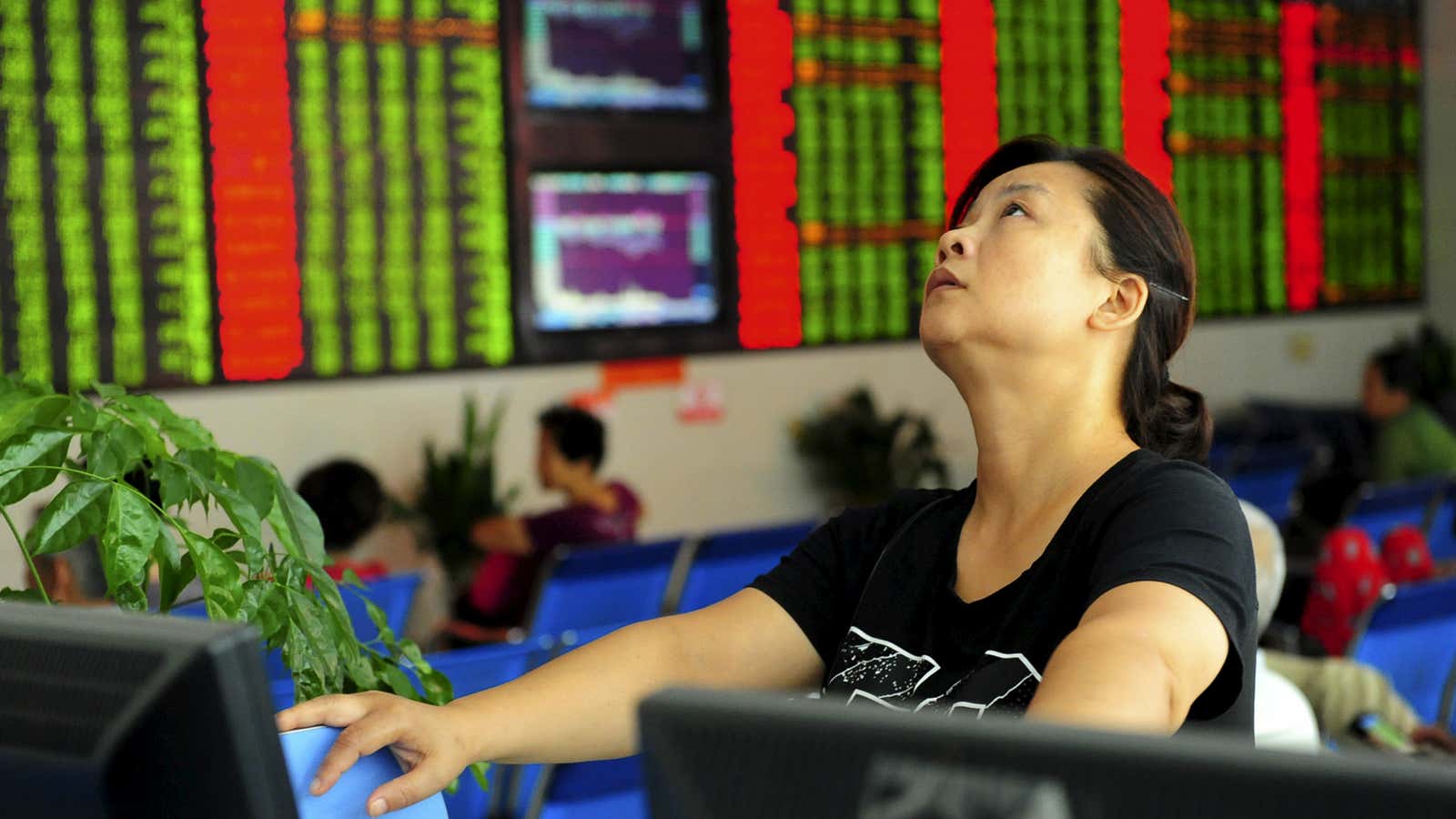China’s Shanghai Composite Index dropped more than 7% in early trading on Monday, setting the stage for another brutal week in world stock markets.
Last week, China’s markets dragged Asian stock markets lower and the Dow Jones Industrial Average into correction territory for the first time since 2011. On Friday (Aug. 21), the Shanghai Composite Index fell 4.3%, and briefly dipped below the 3,500 level at which the government has stepped in previously to prop the market up. The index fell more than 11% last week. Despite more than $1 trillion worth of government support measures, stocks have not really stabilized since they started stumbling in June:
One trigger for last Friday’s drop was the independent “flash” manufacturing purchasing managers index (PMI), a measure of manufacturing conditions. The index fell to its lowest level since 2009, spooking investors.
The number was a nasty surprise, but it doesn’t explain why markets continued down today.
The problem that is dogging China’s markets (and the rest of the world) isn’t just that a long-expected China slowdown is truly emerging. The really spooky thing is that no one has any idea of how bad things in China are going to get. Analysts, investors, consultants, and an entire zoo full of “China bears” have been churning out reports on what a potential Chinese economic slowdown will look like for months, even years.
But now that it is upon us, the dearth of reliable, non-manipulated data coming from China and the opaqueness of its big companies, government, and banks, mean that most of these reports are educated guesswork. And that means no one can say for sure what will happen in the world’s second-largest economy. “Uncertainty about China growth is now the main swing factor in markets,” Tim Condon, an economist at ING Group in Singapore, told Reuters on Aug. 21.
China’s GDP, for example, has long been considered a carefully-managed charade. The country’s scarily high bad debts are believed by many bears to be seriously under-reported, although nobody outside of the banks themselves really knows by how much.
That may be why markets reacted so sharply to the “preliminary” PMI figure on Friday. It is one of the few independent measures of China’s manufacturing growth, compiled by Markit and newly sponsored by Chinese business news outlet Caixin, which recently took over from HSBC. China has an officially generated PMI as well, but that figure nearly always comes in equal to or higher than the Markit figure.
China formally relaxed laws over the weekend that would allow pension funds to invest in the stock market. But instead of inspiring investors, the move, like much of China’s market stimulus, seems to have made them more worried about China’s economic future.




